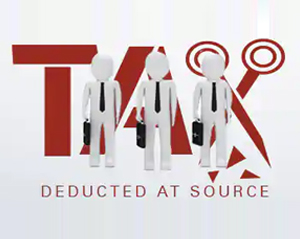As you may be aware, the Goods and Services Tax (GST) has replaced all indirect taxes like Service Tax and Cess from July 1, 2017. The introduction of the GST by the Government of India is a significant step in implementing a uniform indirect taxation system in India.
How Do Goods and Services Taxes Affect Insurance Policies?
GST is applicable to all insurance policies in India since insurance is a service. Policyholders pay GST on their insurance premium. The GST rates applicable depend on the type of insurance policy and are subject to prevailing tax* laws.
List of GST rates on Different Life Insurance Policies
| Product Type | Applicable on | GST (July 1, 2017 onwards) |
|---|---|---|
| Term Policy | Premium payable | 18% |
| Unit Linked Insurance Policy | All applicable charges | 18% |
| Riders | Premium Payable i.e. Accidental Death Benefit Rider | 18% |
| Health Insurance Policy | Premium Payable | 18% |
| Endowment Policy | First Premium | 4.50% |
| Endowment Policy | Premium Payable i.e. Regular Premium | 2.25% |
| Single Premium Annuity Policy | Premium Payable | 1.80% |
Does GST Paid for Insurance Provide Tax Savings?
GST on insurance premiums is eligible for tax^ benefits subject to conditions under Section 80C of The Income Tax Act, 1961. You can claim a deduction of up to ₹ 1.5 lakh per annum. Additionally, the GST paid on health insurance premiums is eligible for deduction subject to conditions under Section 80D of The Income Tax Act, 1961. You can claim a maximum of ₹ 1 lakh per annum under Section 80D for policies bought for self, spouse, children and parents.
However, insurance policies such as car insurance and home insurance do not offer tax^ benefits under The Income Tax Act, 1961.
How Life Insurance Policy Can Help You Save Taxes?
Life insurance policies offer attractive tax^ benefits to policyholders under the following key sections of the Income Tax Act, 1961:
Section 80C
Under Section 80C of The Income Tax Act, 1961, policyholders can claim a deduction of up to ₹ 1.5 lakh per annum for premiums paid toward life insurance policies.Section 10(10D)
The proceeds from a life insurance policy are exempt subject to conditions prescribed under Section 10(10D)^ of the Income Tax Act, 1961.Section 80CCC
Section 80CCC^ allows individuals to claim deductions of up to ₹ 1.5 lakh per year for contributions made towards specific pension funds offered by life insurance policies.Section 10(10A)
According to Section 10(10A)^, a commuted pension received in a lump sum is exempt for government employees or those receiving pensions from life insurance company funds subject to certain conditions prescribed under the law.
Conclusion
GST has introduced a more transparent tax structure and reduced the potential for exploitation. However, it is still essential for policyholders to consult a financial advisor to understand how GST on life insurance premium can impact them. This will ensure that you make informed decisions and lower your tax liabilities.
COMP/DOC/Jan/2025/61/8078
Answers to commonly asked questions on GST
People like you also read ...






